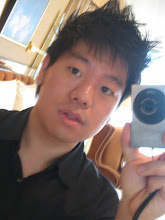My speech at the “Voices of War,” forum held by the UNLV Student Veterans Organization.
First and foremost, I’d like to begin by thanking the UNLV Student Veterans Organization for putting together such an important forum for students and for the members of our local community. As it has been stated repeatedly throughout the discourse of the evening, the actions of American veterans and the actions of our current men and women in uniform have had a long and lasting impact on the geopolitical history of America and the rest of the world.
Thus, given the subject matter at hand, I can only imagine how your curiosity could be perked by the fact that I am sitting on this panel addressing you this evening. Frankly speaking, while my path in life has never directly crossed with service to our country by means of dedicated military service, my life has been intrinsically impacted by the brave veterans of our country. It is for this matter that I sit here today in an attempt to try to demonstrate how the actions of our brave men and woman in uniform could have drastically influenced your life and the lives of the peers that sit amongst you on this night.
Born in Taejun, South Korea but raised and naturalized in the United States, I am a product of two nations that have been entwined together in history for over the past 65 years. I am a proud Korean-American.
And as a proud Korean-American, I bring you this deeply personal story due to the fact that without the intervention of American soldiers who gave their lives in the defense of a country they’d otherwise probably would have never stepped foot in, it would be nearly impossible for me to be sitting here speaking to this group on this October evening.
Since I sit amongst a group of Americans who undoubtedly love their country, let me take some time to brag about the country of my heritage. In this age, South Korea stands as a member of the developed G-20 nations, currently ranking 15 in the world in terms of GDP. As a full functioning democracy, South Korea has risen to become a global power and a staunch ally of the United States. With a developed free market and a capitalistic society, South Korea has become integrated with the world wide community through means of commerce. It probably wouldn’t be a surprise if many of you in this room had LG or Samsung cell phones, televisions, home appliances or drove cars made by Hyundai and Kia.
But the reflection of South Korea as it stands today would not have entered even the most vivid of imaginations of the many American soldiers who stepped foot in my ancestral homeland at the start of the Korean War in June 25, 1950.
As a product of the Cold War, the Korean peninsula had been divided between the Soviet Union and the United States at the end of World War II, much like Germany and the rest of Europe had been divided between the spheres of Communism and Capitalism.
And while I am not naïve enough to believe that the United States and the United Nations intervened purely out of good will and in their love of the Korean people, it was nevertheless, the fruit born from the bloodshed that occurred over years of fighting back and forth across the peninsula. South Korea today stands as a prime example to the world of what can happen when America leads the free nations of this earth to uphold freedom in the face of tyranny.
Never in the history of the world has any other soldier given so much and asked for so little in return. The American soldier has marched in the defense of freedom to the most remote sectors of the world and I pray that Americans will continue to see her men and women in uniform as liberators and not as occupiers.
To conclude my speech, I’d like to finish by stating that it is my hope that in perhaps thirty years time, my children will also be able to attend an institution of higher learning where they can sit in an open forum and hear a similar story from an Iraqi gentleman or an Afghani lady on how their countries have flourished with democracy and liberty due to the valiant heroism of our American veterans.
Thursday, November 5, 2009
Subscribe to:
Comments (Atom)




